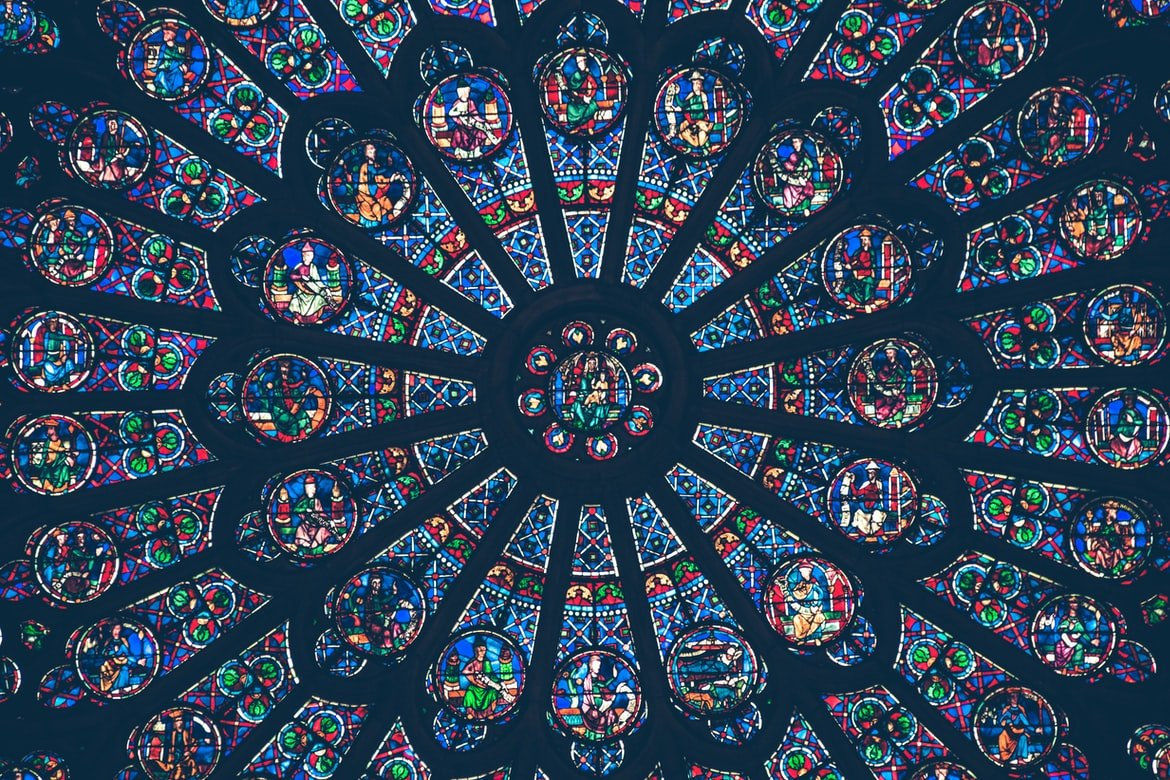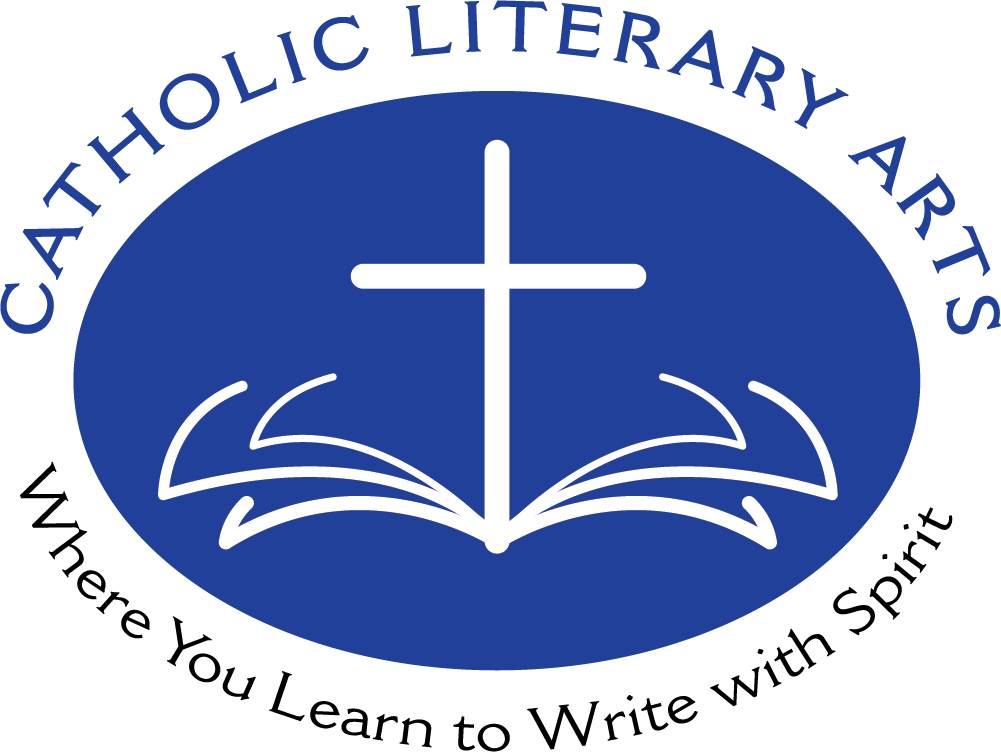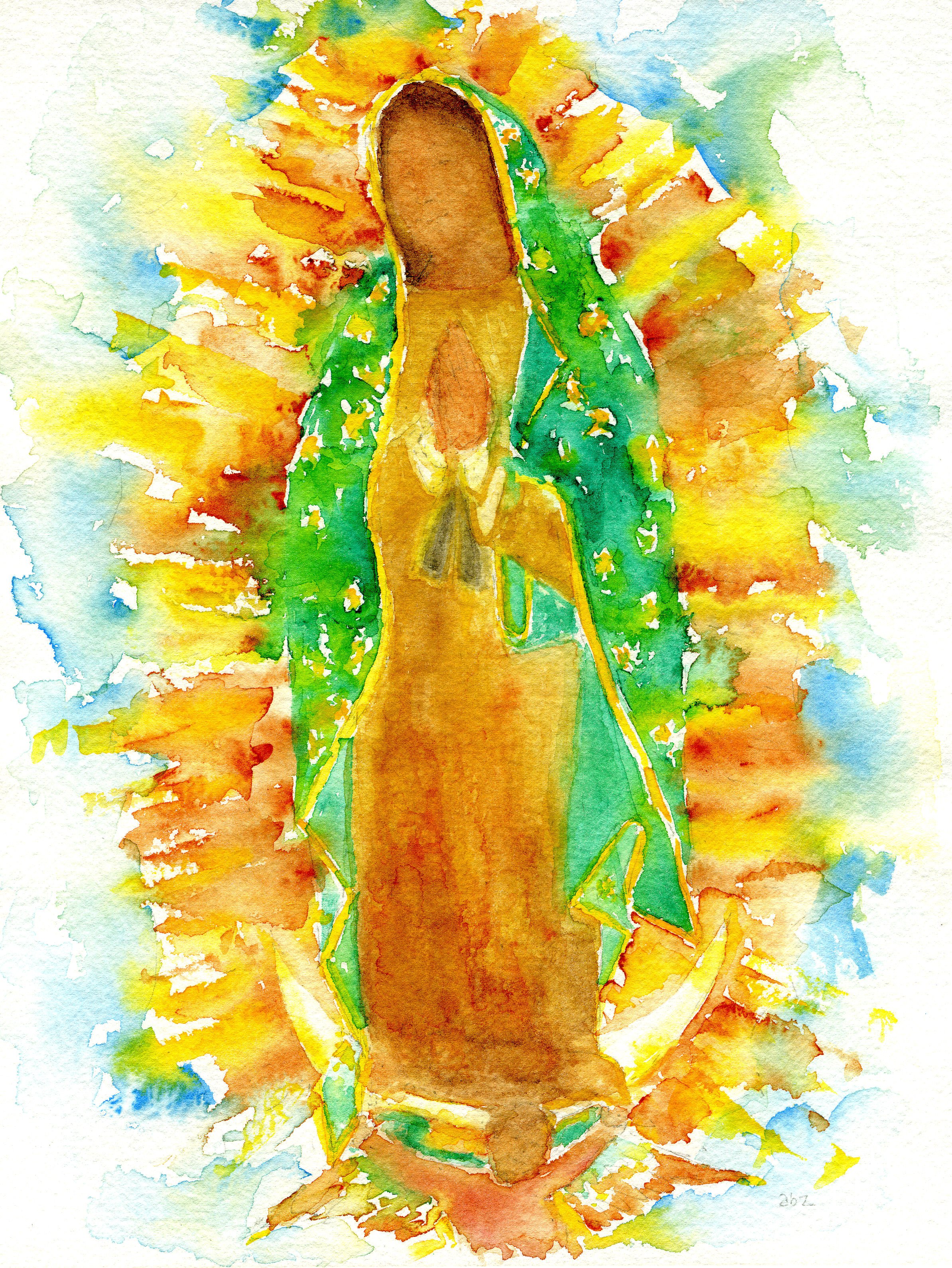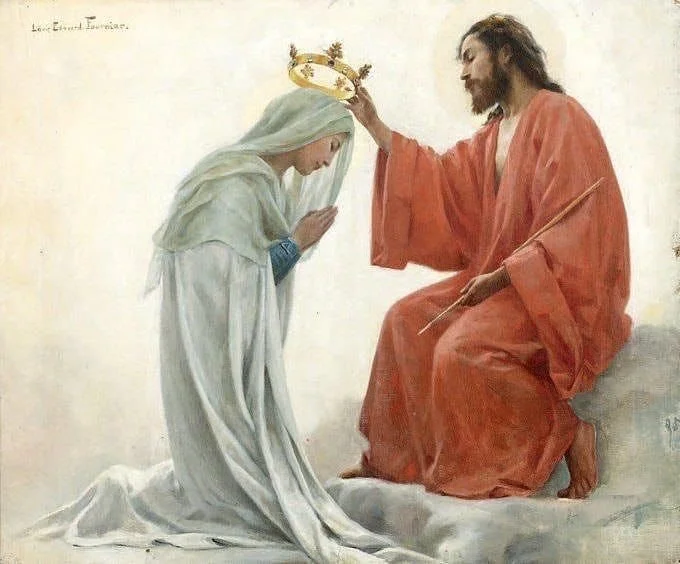
C O N T E S T S
2024 Annual Sacred Poetry Contest
Congratulations to the finalists and winners of CLA’s 2024 Sacred Poetry Contest!
This year’s finalists are: Sarah B. Cahalan, Johanna Caton, O.S.B., Karen D’Anselmi, Jeffrey Essmann, Carla Galdo, Fred Gallagher, Maura Harrison, Daniel Jabe, William James, Elisabeth Kramp, Stephen Kramp, Joan Lange, J.E. McBride, Kelsey McIntyre, Tamara Nicholl-Smith, Rhonda Melanson, Peter Walford, Gail White.
We thank all who entered into the contest and wrote such excellent work to continue the time-honored conversation of Sacred Poetry. Please read the winning entries below!
First Place: J.E. McBride
Second Place: Tamara Nicholl-Smith
Third Place: William James
Meet Our Judge
We are honored to have Ryan Wilson as our judge this year.
Ryan Wilson is Editor-in-Chief of Literary Matters (literarymatters.org) and author of The Stranger World (Measure, 2017), winner of the Donald Justice Poetry Prize, of How to Think Like a Poet (Wiseblood, 2019), of Proteus Bound: Selected Translations (Franciscan UP, 2021), and of In Ghostlight: Poems (LSU, 2024). His work appears widely in periodicals such as 32 Poems, First Things, Five Points, The Hopkins Review, The New Criterion, Quarterly West, The Sewanee Review, and The Yale Review, and his poems have been anthologized in Best American Poetry, Christian Poetry in America Since 1940, and elsewhere. Co-editor of the forthcoming anthology Contemporary Catholic Poetry (Paraclete, 2024), he teaches at The Catholic University of America and in the M.F.A. program at The University of St. Thomas – Houston.
Website: https://ryanwilsonpoetry.com/
Honorable Mention
The Honorable Mention designation is awarded to poets Carla Galdo, Maura Harrison, Dan Jabe, and Kelsey McIntyre for these titles:
Carla Galdo, “Conversione de San Paolo, Caravaggio”
Maura Harrison, “The Stranger Wore the Moon”
Dan Jabe, “Christ Before Pilate”
Kelsey McIntyre, “Mary and the Angel”
Third Place
Purgation by William James
Purgation
Response to Tanner’s “The Annunciation”
The damp, wool robe descends like armored hordes
Cresting a snow-white hill. Perturbed by dreams,
The maiden folds her hands: her will her Lord’s.
Beset by foes, her worries run like streams.
Nations, time and again,
Throw stones at holy men,
But they will fall.
She heard him many times, but none like this.
A terrible, hot tongue unseams her cell:
A thousand trumpet blasts, a black abyss
Encompassed by the echo of a bell.
While bride and bridegroom dance,
The Cherubim advance
Amid the wall.
Before she left, they asked her what she saw.
She smiled and would not say. Where to begin?
With upturned eyes, she burned with hidden Law;
Thus blindness blessed a virgin free of sin.
Salted with fire, mankind
Will enter Heaven blind,
Or not at all.
– William James
Comments on Purgation by Judge Ryan Wilson
There is much to admire in this poem. I especially appreciate its structure. Recalling Renaissance masters such as Herbert and Donne, the poet conjoins cross-rhymed pentameter quatrains with tercets, consisting of two lines of iambic trimeter and one of dimeter, to create a heterometrical septet with a rhythmic diminuendo akin to that found in Longfellow’s great ‘Snow-Flakes,’ but here embodying a fundamental Christian paradox. Moreover, each stanza’s first four lines describe Mary, while its final three lines provide abstract commentary, thus paralleling structurally the colloquy between the Virgin and the Angel rendered so beautifully in Henry Ossawa Tanner’s The Annunciation and also the conjunction of the four cardinal and three theological virtues. The poem’s astute blending of water imagery (stanza 1) with fire imagery (stanza 2) also strikes me as felicitous, as does the handsomely rendered image of the bell.
Second Place
Arrival of Kings by Tamara Nicholl-Smith
Arrival of Kings
Response to Stachiewicz’s “Three Holy Kings”
Others have already wondered how
you could have known what route to take: contended
you read stars, could touch your fingers to
their bright braille and divine direction from
their winking warmth, that something deep inside
you, like a compass, gave you certainty.
But I am thinking of the moment when
your journey finally came to an end,
the moment you emerged from night’s long road,
to gather at the place where Mary and
Joseph had made a home. Where one by one
you each stepped forward, backlit by the lambent
rays of the low-hung sun, to reverently
present your gifts of gold, of frankincense,
and myrrh. I can see it, the faint shape cast
by your bejeweled crowns in the dark play
of light, a fleet flickering glimpse of future —
shadow of thorns, crowning the holy child’s head.
– Tamara Nicholl-Smith
Comments on Arrival of Kings by Judge Ryan Wilson
Writing to the Corinthians, St. Paul says ‘the letter killeth, but the spirit giveth life.’ The poet of ‘Arrival of the Kings’ does not engage Piotr Stachiewicz’s beautiful Three Holy Kings in the way ekphrastic poems usually engage paintings, but does capture its spirit of questing. Thus, the poet quickly leaves behind others’ wonderings to wander off on a personal quest toward the magi’s arrival in Jerusalem, though the poet’s quest is typologically the same as that of three Kings, as signaled by the supple (and subtle) iambic pentameter being grouped significantly into tercets. Nonetheless, the medieval crowns from Stachiewicz’s picture do seem the basis of the conclusion’s stunning imagery, their sharp angles transforming, as the perspective shifts, into ‘a fleet flickering glimpse of future – / shadow of thorns, crowning the holy child’s head.’ Here, the transformation of the crowns subtly points toward the transformation of History by Christ’s entrance into it, and the poem reaches a profound discovery about the nature of power. The delicacy with which the poet renders this earthshaking scene is stunning.
First Place
The Prefect of Judea by J.E. McBride
The Prefect of Judaea
Response to Munkácsy’s “Christ Before Pilate”
An ambitious man, the scribes do not record
To whom he gave offense to have received this fate.
This tedious posting in an alien land, red
With blood and clay and drudgery of bleary mornings,
Bearing the bickering of an apocalyptic people,
Blasphemers against the gods of sovereign and of hearth.
Partisans of a jealous deity, whom they propitiate in vain
With law, burnt sacrifice of lamb, bombastic scorn of prophets.
Their father, unforgiving, has led them into slavery,
Bound them under destiny of others greater than themselves,
Under yoke of legion and of Emperor, true divinity on earth.
He comforts himself with the wisdom of his counselors.
In his martial ear they pour the subtleties of geopolitics.
Like all ambitious men, he knows as by an animal instinct
That faithfulness in humble things stores up talents
To spend, in the acceptable hour, at Caesar’s marketplace.
But how he tires of his charge. Will he waste a decade here?
A life? Embroiled in minutiae, august decrees disdained by mobs?
What will the histories say of him—a legacy of rebellion,
Tax enforcement, petty property disputes? Dragged down
by years
As they sink below the sands, and disappearing with them
The dying embers of longed-for honors
That once cast their golden light across his youth.
What is left to love? He loves power, Apollo, and the sea.
From Caesarea he looks west, yearning for the source of each.
In Jerusalem, unwilling, he suffocates under absurdity.
Why is there this disheveled wanderer tossed before him,
Delaying midday luncheon, calling him forth from chambers
Dark and cool where nameless courtesans soothe aching feet
With sponges of sweet water, where matters of state
Can be contemplated in something approaching peace.
No, he knows truth. He always had. He didn’t need a dream
To teach him. Truth is the hand that governs men,
The disciplining fear, the audacious heart, the heft
Of the javelin in the palm, the conviction that compels the spear
Past the ramparts of unyielding flesh.
Truth is what goes beyond, what builds the order of the world
Against the inertia of its decay. A duty always changing.
Today it means the cunning compromise, tomorrow the razing fist.
Fools in fora and the halls of senate speak of truth
Like boys in bloom boast with tales of women’s bodies
But it is here along the edges of the map where unsung men
Weave its boundaries from the void and seal them with the stamp
of death.
And so, a day like any other. He lifts his hand, he speaks, he writes.
Hesitates for a single moment, does not erase what he
has written.
– J.E. McBride
Comments on The Prefect of Judaea by Judge Ryan Wilson
From its opening lines, which utilize ambiguity subtly to suggest Pilate’s perversion of the Imago Dei, this poem captivates with its masterful command of voice and its trenchant ironies. Everywhere, the poet displays a remarkable technical dexterity, by turns recalling C.P. Cavafy and Anthony Hecht. The long, prosaic lines point up what Hannah Arendt called ‘the banality of evil,’ its unfussiness, which is further emphasized by the lines’ extraordinary cleanliness and poise. The final sentence in the first verse paragraph deploys a syntactical legerdemain worthy of Horace, and the quiet understatement of the poem’s conclusion proves both devastating and convicting. On rood, Christ prays, “Father, forgive them; for they know not what they do,” and this extraordinary poem illuminates Pilate’s nescience, as well as our own. Fascinating, profoundly moving, and brilliantly executed, this poem captures the pathos of the lost, who, being disoriented, “look west,” who have turned their backs upon the rising, and risen, Son, whose Presence, though backgrounded in these verses, nonetheless gives them an abiding radiance.
Contest Information
We welcome you to the 2024 Sacred Poetry Contest sponsored by Catholic Literary Arts. We look forward to reading your work. Please read the guidelines and information below carefully. Additionally, we encourage your review of prior years’ winners of this contest which are available on our website.
The 2024 Sacred Poetry Contest opens December 1, 2023 and ends at 11:59 p.m. CST on March 31, 2024.
Guidelines for the Contest:
All poems submitted will be ekphrastic poems. That is, they are literary responses to the art presented in this contest.
We are looking for poems which display the following characteristics.
Technical proficiency: the poet employs devices of sound and language, form and image, in fresh and powerful ways.
Creativity: the poem reveals a unique, unexpected approach. The poem speaks to the power of the visual image and taps into the eternal perspective of a spiritual journey toward the Trinitarian God.
The search for Truth: the poet grapples with some aspect/s of the human condition within the story of Salvation history.
Prizes:
First place prize: $250
Second place: $200
Third place: $150
The first prize-winning poem will be published in Catholic Arts Today, an international publication of the Benedict XVI Institute, San Francisco.
The three prize-winning poems will be published on the Catholic Literary Arts website. The three winning poets will be awarded a year’s membership to Catholic Literary Arts.
Specifics:
All poems must be original, unpublished in print, on the web, or in limited edition books.
Simultaneous submissions are not allowed.
Submissions will be primarily in the English language.
International submissions are allowed, if Paypal will process the entry fee.
Line maximum per poem: 48 lines (does not include title or stanza breaks)
Format: all poems must be in 12 pt. font in a typeface of Times New Roman, Arial, or other easy to read typeface. We regret that we're unable to accept handwritten pages.
Form: all forms and free verse are accepted.
Entry Fee: $25 for up to three poems. Poets are limited to a single entry of up to three poems.
Entry is open to poets aged 18 or older on the date of submission.
All submissions are handled through Submittable.
Click the button to submit your poem.
Judging:
All judging is blind judging. The name of the poet must not appear on the poem itself or in the file name when submitted. There are no exceptions to the blind-judging requirements. The Submittable system will direct each poet to completion of a form that stores the poet's identifying information and other pertinent information related to the entry.
Text and Contest Parameters (Submittable):
One fee of $25. Up to three poems may be submitted. Only one submission per poet. Files may be .doc, .docx.
Instructions for poets:
Please give the title of each poem and the number and title of the sacred image to which it is a response by completing the Submittable form designed for this purpose. Name of poet must not appear in or on poem itself or in the file name when submitted. A list of the images and artists is given for your convenience.
Click on an image for a larger view. Scroll through the larger images using the left and right arrows.
1. Mihaly Munkacsy – Christ Before Pilate
2. Dan Delouise — For Love of You
3. Br. A. Brian Zampier, SM — Guadalupe Breakthrough
4. Lu Hongnian — Jesus with the Woman at the Well
5. Henry Ossawa Tanner — The Annunciation
6. Michelangelo M. da Caravaggio — The Conversion of St. Paul on the Road to Damascus
7. Louis-Édouard Paul Fournier — The Crowning of the Virgin
8. Piotr Stachiewicz — Three Holy Kings
For more information about the artists, visit their website:
Mihaly Munkacsy – Christ Before Pilate (Public Domain)
Dan Delouise — For Love of You https://endersisland.org/dan-delouise
Br. A. Brian Zampier, SM — Guadalupe Breakthrough https://abrianzamp.wordpress.com/about
Lu Hongnian — Jesus with the Woman at the Well (Public Domain)
Henry Ossawa Tanner — The Annunciation (Public Domain)
Michelangelo M. da Caravaggio — The Conversion of St. Paul on the Road to Damascus (Public Domain)
Louis-Édouard Paul Fournier — The Crowning of the Virgin (Public Domain)
Piotr Stachiewicz — Three Holy Kings (Public Domain)
Deadlines and Dates:
The contest opens 12/1/23 for submissions.
The contest ends 3/31/24 at 11:59 p.m. CST.
Winners will be announced on the Catholic Literary Arts website by May 1, 2024, 11:59 p.m. CST.
Winners posted on CLA website: May 1, 2024 by 11:59 pm.
The judge’s comments will be posted along with the text of the winning poems, visual image, and link to author’s websites, if applicable.
All non-winners will be notified by May 5, 2024 via Submittable.
Virtual Winners’ Reading:
Winners and finalists will be invited to read their entries at a virtual celebration via Zoom. Tuesday, May 7, 7:00 pm, CST.
Mr. Ryan Wilson will attend this virtual reading and read previously prepared comments on each of the three winning poems.
Ineligible to Enter:
Catholic Literary Arts board members and charter members of the Catholic Poetry Society are ineligible to enter. Persons under age eighteen on the date of submission are ineligible to enter.
Any winning entries that are found in non-adherence to contest guidelines will be disqualified.
Communication with Catholic Literary Arts and Submittable:
If you have a question, please email cathla.org@gmail.com and enter 2024 Sacred Poetry Contest in the subject line.
Please contact Submittable directly if you have questions about your entry or the process of your entry.
Meet Our Judge
Ryan Wilson is Editor-in-Chief of Literary Matters (literarymatters.org) and author of The Stranger World (Measure, 2017), winner of the Donald Justice Poetry Prize, of How to Think Like a Poet (Wiseblood, 2019), of Proteus Bound: Selected Translations (Franciscan UP, 2021), and of In Ghostlight: Poems (LSU, 2024). His work appears widely in periodicals such as 32 Poems, First Things, Five Points, The Hopkins Review, The New Criterion, Quarterly West, The Sewanee Review, and The Yale Review, and his poems have been anthologized in Best American Poetry, Christian Poetry in America Since 1940, and elsewhere. Co-editor of the forthcoming anthology Contemporary Catholic Poetry (Paraclete, 2024), he teaches at The Catholic University of America and in the M.F.A. program at The University of St. Thomas – Houston.
Website: https://ryanwilsonpoetry.com
Celebration of Winners and Finalists
We invite all poets and friends to join Ryan Wilson and the winners and finalists in a virtual Celebration of Winners and Finalists reading their work, May 7, 2024 at seven p.m. CST via Zoom. An array of poetry editors from literary publications will join us.
The event is free, but registration is required.
We welcome your donations to help fund scholarships for next school year's Teen Writing Mentorship Program. See the details of this program here.











